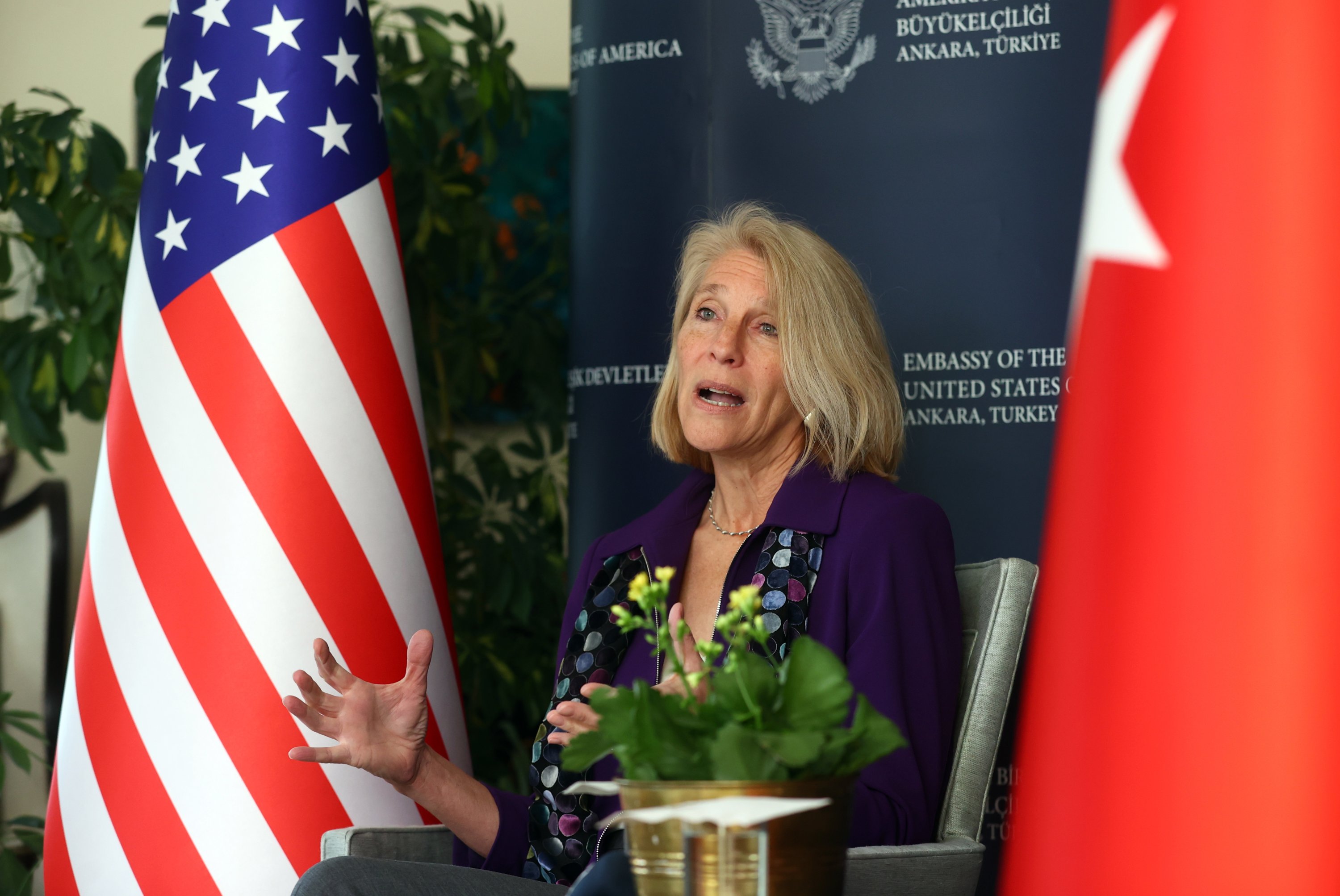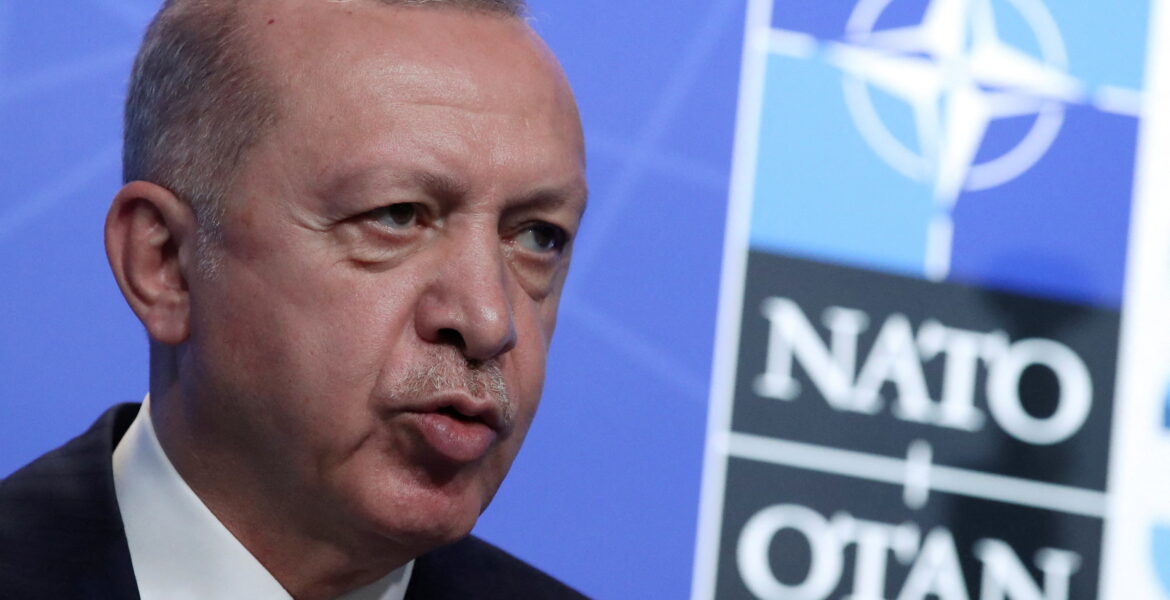President Recep Tayyip Erdoğan is set to veto the Swedish and Finnish accession into NATO, arguing that these countries bring difficulties for Turkey’s national and state interests. His veto does not only challenges further plans to expand the Alliance but also questions the credibility and unity of the bloc.
Referring to Greece’s re-entrance into NATO in 1980 after it suspended its membership following the Turkish invasion of northern Cyprus in 1974, Erdoğan said: “You know how Greece behaves in the Alliance towards Turkey. This is another mistake Turkey does not want to make.” Then in reference to the Kurdistan Workers Party (PKK) and the Gülen movement, the Turkish president added: “Scandinavian countries are a nursery of terrorism, they tend to treat terrorists hospitably, to let them into parliament. Therefore, for the time being, we cannot look at it positively.”
Although Erdoğan attempts to skew Turkish violations of Greek national airspace and complains about Western support for the PKK’s Syrian offshoot, the People’s Protection Units (YPG), this is hardly the first contradiction in NATO. Among many other NATO contradictions in recent times, Turkey has not imposed sanctions on Russia for its military operation in Ukraine and purchased the Russian-made S-400 missile defense system despite clear warnings from Washington.

There is undeniably a big difference in the treatment of the Kurdish issue between Turkey and the countries that want to fast track the NATO membership of Sweden and Finland. However, as Ankara fears Kurdish separatism in eastern Turkey, it has a no tolerance policy towards the PKK, making differences with the West irreconcilable as there is an unwillingness to end support for the YPG.
The Kurdish diaspora is also becoming far more pronounced, and according to Erdoğan, they are gaining more political influence in Western states. Ankara considers this a major reason for the hindrance in Turkey-NATO relations.
Another reason Turkey is opposing the Swedish and Finnish entry into NATO is because of its relations with Greece, which Erdoğan says are tense despite the fact that both states are supposed NATO allies. Although Turkish fighter jets have violated Greece’s airspace on a daily basis for years, in an unprecedented move on May 7, the US State Department described the actions as “provocative”. Turkey’s daily violations of Greek airspace also corresponds with its internationally rejected claims over some Greek islands and islets.
As Erdoğan is on an election campaign, albeit still unofficially, it is critical for him to try and preserve national unity, especially as the battle with the Kurds is also being fought, illegally, in the territory of Iraq and Syria. With absolute consensus needed before a country can enter NATO, Erdoğan’s leveraging of NATO membership can make him appear domestically to be a major player in global affairs.
Even if there was a circumvention of NATO protocol regarding membership, as Turkey is a critical member of the alliance and has the second largest manpower in the bloc, it is likely that Erdoğan will use this advantage to gain concessions elsewhere or threaten to more deeply integrate into the emerging Eurasia system and out of the Atlantic one. If the leading NATO countries have assessed this as strategically important to them, especially in the current global context, they will try to come up with a formula to appease Turkey to unblock their veto.
None-the-less, even if a solution is found, Erdoğan's opposition has once again called into question the credibility of NATO’s unity. Turkey's stance and rejection creates the impression of poor functioning and major problems in NATO’s internal relations. Although states may have political differences, when it comes to military matters, the point of NATO is to show unity. In this way, the Turkish position will have some weight, as seen by the State Department announcing that Assistant Secretary of State Karen Donfried will discuss the topic seriously with Ankara.

With the Swedish and Finnish public having unprecedented support for NATO membership, Washington will not want to lose such an opportunity. For this reason, Washington will make a serious effort to overcome disagreements to win Ankara’s favor to open the path of NATO membership for the two Scandinavian countries.
Until now, Turkey has not offered any concessions regarding its stance towards Russia and the procurement of the S-400. Washington at the moment favors relations with Greece as it is fully serving its interests at NATO’s southern flank and in many ways is attempting to replace Turkey’s importance to the bloc and significant military investment is going into the Mediterranean country while Turkey remains locked out the F-35 fifth generation fighter jet program and unable to upgrade its F-16 fighter jets. Turkey could perhaps even leverage its veto to reverse the many advantages the Greek military has achieved over its Turkish counterpart.
Regardless, as Erdoğan serves the interests of Turkey first and foremost rather than the consensus of NATO, he will use the veto as a means to either reverse Western support for the YPG, to allow Turkey back into Western weapons programs that it is barred from to regain advantage over the Greek military, and/or get financial relief. Either way, Turkey is unlikely to end its veto without gaining something major in return.
READ MORE: Turkey’s behaviour is illegal: Defence Minister.


